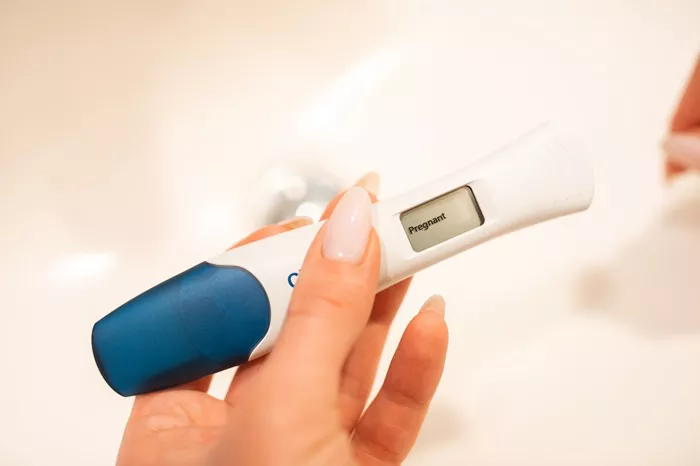A biochemical pregnancy refers to a very early pregnancy that is confirmed through a blood or urine test but does not progress to a clinical pregnancy. This article delves into the intricacies of biochemical pregnancy, providing detailed insights into its definition, causes, symptoms, diagnosis, and the emotional impact it may have on individuals and couples.
What is Biochemical Pregnancy?
Biochemical pregnancy occurs when a fertilized egg implants in the uterus, leading to the production of human chorionic gonadotropin (hCG) hormone. However, the embryo does not develop further, resulting in a very early miscarriage. This type of pregnancy is often identified through home pregnancy tests or blood tests that detect elevated hCG levels. It is termed “biochemical” because the pregnancy is confirmed biochemically through hormone levels rather than through ultrasound or physical signs of pregnancy.
Understanding the Hormonal Aspects
Role of hCG in Pregnancy
Human chorionic gonadotropin (hCG) is a hormone produced by the placenta shortly after implantation. Its primary role is to maintain the corpus luteum, which in turn produces progesterone to support the early stages of pregnancy. In a biochemical pregnancy, hCG levels may initially rise but eventually fall as the embryo fails to develop.
hCG Levels and Pregnancy Tests
Pregnancy tests measure the level of hCG in the urine or blood. In the case of a biochemical pregnancy, a test may yield a positive result, indicating that hCG is present, but follow-up tests may show a decrease in hormone levels, confirming that the pregnancy is not viable.
Causes of Biochemical Pregnancy
Chromosomal Abnormalities
One of the most common causes of biochemical pregnancies is chromosomal abnormalities in the embryo. These abnormalities can occur during fertilization and often prevent the embryo from developing properly.
Maternal Health Factors
Certain maternal health conditions can increase the risk of biochemical pregnancy. These include hormonal imbalances, uterine abnormalities, and chronic health issues. Conditions such as polycystic ovary syndrome (PCOS) or thyroid disorders can also contribute to early pregnancy loss.
Environmental Factors
Environmental factors may also play a role in biochemical pregnancies. Exposure to toxins, poor nutrition, and lifestyle choices such as smoking or excessive alcohol consumption can negatively impact embryo development.
Symptoms of Biochemical Pregnancy
Early Pregnancy Symptoms
In a biochemical pregnancy, individuals may experience typical early pregnancy symptoms. These symptoms may include:
Missed Period: A delayed or missed menstrual cycle may prompt individuals to take a pregnancy test.
Breast Tenderness: Hormonal changes can cause breast tenderness and sensitivity.
Fatigue: Increased levels of progesterone can lead to feelings of fatigue and tiredness.
Symptoms of Miscarriage
As the biochemical pregnancy does not progress, symptoms of a miscarriage may follow. These symptoms can include:
Cramping: Mild to moderate cramping may occur as the body begins to expel the non-viable pregnancy.
Bleeding: Light spotting or bleeding may be experienced, often similar to a menstrual period.
Diagnosis of Biochemical Pregnancy
Home Pregnancy Tests
Home pregnancy tests are often the first step in diagnosing a biochemical pregnancy. These tests detect the presence of hCG in urine. A positive result indicates that pregnancy hormones are present, but it does not confirm a viable pregnancy.
Blood Tests
Healthcare providers may conduct quantitative blood tests to measure hCG levels more accurately. These tests can determine if hCG levels are rising or falling over time. In cases of biochemical pregnancy, hCG levels may initially rise and then begin to decrease, indicating a non-viable pregnancy.
Ultrasound Evaluation
While biochemical pregnancies are typically diagnosed through hormone testing, an ultrasound may be performed to confirm the absence of a gestational sac or fetal heartbeat. This evaluation helps healthcare providers determine the status of the pregnancy.
Emotional Impact of Biochemical Pregnancy
Feelings of Loss
Experiencing a biochemical pregnancy can lead to feelings of loss and grief, despite the pregnancy being very early. Individuals may feel sadness, disappointment, or frustration as they process their emotions.
Importance of Support
Emotional support is crucial during this time. Couples may benefit from discussing their feelings with friends, family, or healthcare professionals. Support groups or counseling may also provide a safe space to share experiences and feelings.
Navigating Future Pregnancies
Individuals who experience a biochemical pregnancy often wonder about their chances of future pregnancies. While biochemical pregnancies are common and usually not indicative of underlying fertility issues, it is important for individuals to discuss their concerns with healthcare providers for personalized guidance.
Preventive Measures and Recommendations
Healthy Lifestyle Choices
Maintaining a healthy lifestyle can support overall reproductive health. Recommendations include:
Balanced Diet: A diet rich in fruits, vegetables, whole grains, and lean proteins can provide essential nutrients for reproductive health.
Regular Exercise: Engaging in regular physical activity can help manage stress and promote hormonal balance.
Avoiding Harmful Substances: Reducing or eliminating alcohol, tobacco, and recreational drug use can improve overall health and reduce the risk of early pregnancy loss.
Regular Medical Check-ups
Regular medical check-ups can help identify and manage any underlying health conditions that may affect pregnancy. It is essential to communicate openly with healthcare providers about any concerns or symptoms.
Monitoring Cycles
Individuals trying to conceive should monitor their menstrual cycles and fertility signs. Understanding ovulation patterns can enhance the chances of conception and help identify any irregularities in cycles.
Conclusion
Biochemical pregnancy is a common occurrence that reflects the complex nature of early pregnancy. Understanding its definition, causes, symptoms, and emotional impact can help individuals navigate this experience with greater awareness and support. By maintaining a healthy lifestyle and seeking appropriate medical care, individuals can enhance their reproductive health and prepare for future pregnancies. Remember, every journey is unique, and support is available for those navigating the challenges of pregnancy loss.
Related Topics:


